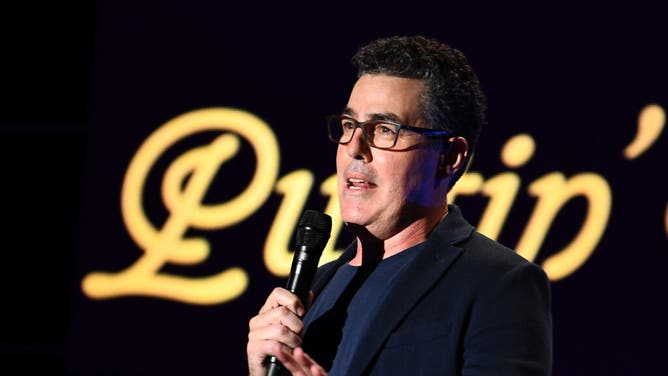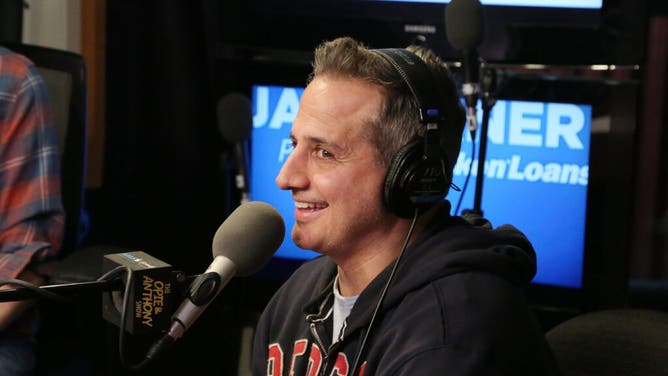Comedians Decry Chappelle Cancellation – ‘A Prohibition of Free Speech’
An iconic Minneapolis club canceling Dave Chappelle’s July 20 gig didn’t happen in a vacuum.
Cancel Culture impacts comedians across the culture, suggesting they can’t share certain jokes or riff on groups considered vulnerable in Western societies.
For some, Chappelle did the latter via his 2021 Netflix special “The Closer.” Critics accused the comedy giant of “transphobia” for gags name-checking the trans community. Others pointed to the special’s heartfelt tribute to a trans comic as proof Chappelle meant no harm to the community in question.
The former sentiment coaxed First Avenue -- where Prince shot scenes from his beloved 1984 movie “Purple Rain” -- to cancel Chappelle’s appearance at the last minute.
Most comedians contacted by OutKick slammed that decision, citing free expression concerns as well as how it might impact other comedians moving forward.
Podcaster and comic Adam Carolla mocked First Avenue's social media message explaining its decision.
"We believe in diverse voices and the freedom of artistic expression, but in honoring that, we lost sight of the impact this would have.”
“I can't stand when people talk about how much they love expression and free speech and in the same breath call for censorship and cancellation. Do you even hear yourself?” asked Carolla, author of the just-released book, “Everything Reminds Me of Something: Advice, Answers … but No Apologies.”
Carolla objects to fears that the wrong joke can cause real-world harm.
“There's no impact. We keep changing the language from offended to affected and now it's 'impacted.' If you don't like Dave Chappelle don't go to his show. Problem solved, no impact,” Carolla said.

Adam Carolla performs onstage (Photo by Araya Diaz/Getty Images for International Myeloma Foundation)
The host of Fox News' "Gutfeld!" addressed the subject via his late night showcase.
“Chappelle is being dangerous. He speaks his mind. That’s real risk these days in the face of the faceless mob,” Greg Gutfeld said in his opening monologue.
Comedian Josh Denny, previously canceled for his sharp-elbowed comments on race and abortion, spent years in Minnesota and knows First Avenue well. He called it “the house that Prince built,” given the late musician’s deep ties to the venue.
“It was a holy place in the minds of every artist who has ever spent time in the land of 10,000 lakes,” Denny said. “In one fell swoop, that entire legacy and reputation is now destroyed, as the venue has abandoned the spirit of artistic integrity that it was built upon.”
It's worth noting that First Avenue's reputation includes hosting black artists at a time when other venues blocked their paths to fame.
Denny added that his own contrarian approach to comedy had already put a Cancel Culture target on his back, and this won’t make things better.
“I wish I could say this was a sign of things to come, but those things are already here,” Denny says. “I and many others already have to hide the identity of our venues to avoid these mobs and cancellations.”
“This is a prohibition of free speech,” Denny adds.
FAMED COMEDY VENUE, FIRST AVENUE, BEING LAUGHED AT AFTER CANCELLING DAVE CHAPPELLE SHOW
Openly conservative comic Nick Di Paolo slammed the cancellation as anti-American.
“They actually described Dave as danger to the trans community…Like they found the decomposing corpse of Chaz Bono and RuPaul under his house,” says Di Paolo, co-starring in the indie comedy “Fourth of July” with canceled comic Louis C.K.
“I love the fact we live in a country where a minuscule group of people … have the rest of the population terrified of their canceling power for lack of a better term,” Di Paolo says.

NComedian Nick DiPaolo visits "The Opie & Anthony Show" (Photo by Taylor Hill/Getty Images)
Comedian and podcaster Chrissie Mayr thinks capitalism may offer the ultimate critique of the venue’s decision.
“If a business would prefer to cater to a woke mob than make money, that is their choice,” Mayr says, adding she wouldn’t bring her act to the venue. “The Knitting Factory in Brooklyn was a popular comedy venue that went super woke in the past few years and guess what? They're closing next month. Perhaps First Avenue will meet a similar fate.”
“Fox Across America” host Jimmy Failla suspects anyone outraged by Chappelle’s material isn’t being honest.
“I think we've reached a point in our culture where to some on the Left, being offended is a form of currency. You get loads of attention and often times you get promoted at work or you get someone fired outside of work, which is a powerful feeling,” Failla says. “The crazy part of the Chappelle story is that he joked about the trans community being ‘too sensitive’ and they've responded by protesting him at every stop.”
Select Netflix employees protested “The Closer” late last year, but Netflix refused to take the special down or cut ties with Chappelle.
"Protesting Chappelle gets people huge attention because he's the most famous comic out there," Failla says, adding many comics tell trans jokes without generating Chappelle-level attention.
The reaction to Chappelle’s cancellation wasn’t universal.
Liberal comedian Jeff Krohn says he supports venues choosing the artists they want to promote. First Avenue still made a mistake by canceling Chappelle so close to showtime.
"They should have made that decision long before that," says Krohn, adding he once got banned by a promoter who learned of his progressive point of view including firm support for trans rights.
Lizz Winstead, the progressive co-creator of “The Daily Show,” reacted to the cancellation via Twitter.
There's a big difference between provocative material, and material that devalues human beings w/ such conviction it creates a legitimacy to cause harm. If you choose the latter, you signed up for backlash. Backlash, turns out, is also free speech. Why is this hard?
Louis Lee, Owner of Acme Comedy in Minneapolis, is no stranger to staff revolts over controversial comedians. His policy is to stick to the initial agreement.
“A contract is a contract,” says Lee, adding it’s unheard of for a venue to cancel an act at the last minute. “I always say, ‘too bad. The show must go on.’”
Lee predicts the Chappelle cancellation might force comedians to insist on tighter contracts to avoid similar issues. The Minneapolis institution also may have opened the door for similar protests, not to mention the need to screen future comics for so-called offensive gags.
“If they give in once, they have to give in every time from now on,” he says.
Lee, who says the issue in play isn’t political in nature, suggests the cancellation is bad news for comedy in general.
“It’s not healthy at all that speech is censored by certain group,” he says, although it may backfire on those cheering on Chappelle's cancellation. “I understand a comic’s mentality. The more you tell them you can’t do this, the more they wanna do it.”
Failla says comedians poking fun at groups and audience members alike is the great cultural equalizer. That's especially true for those in the audience on any given night.
“We're not putting you off in a corner as some type of infantilized, 'lesser than.' We're saying that you are fair game because you came here to laugh like the rest of us,” Failla says. “And anyone who can't laugh at jokes about themselves ultimately becomes a joke.“